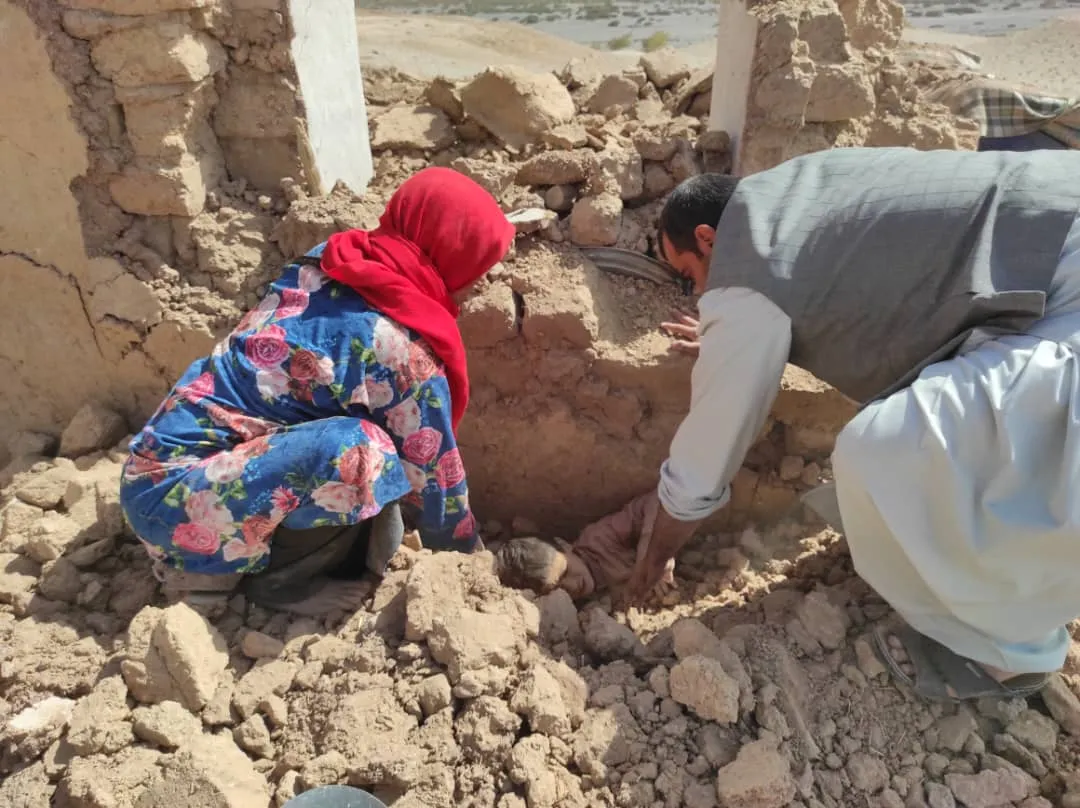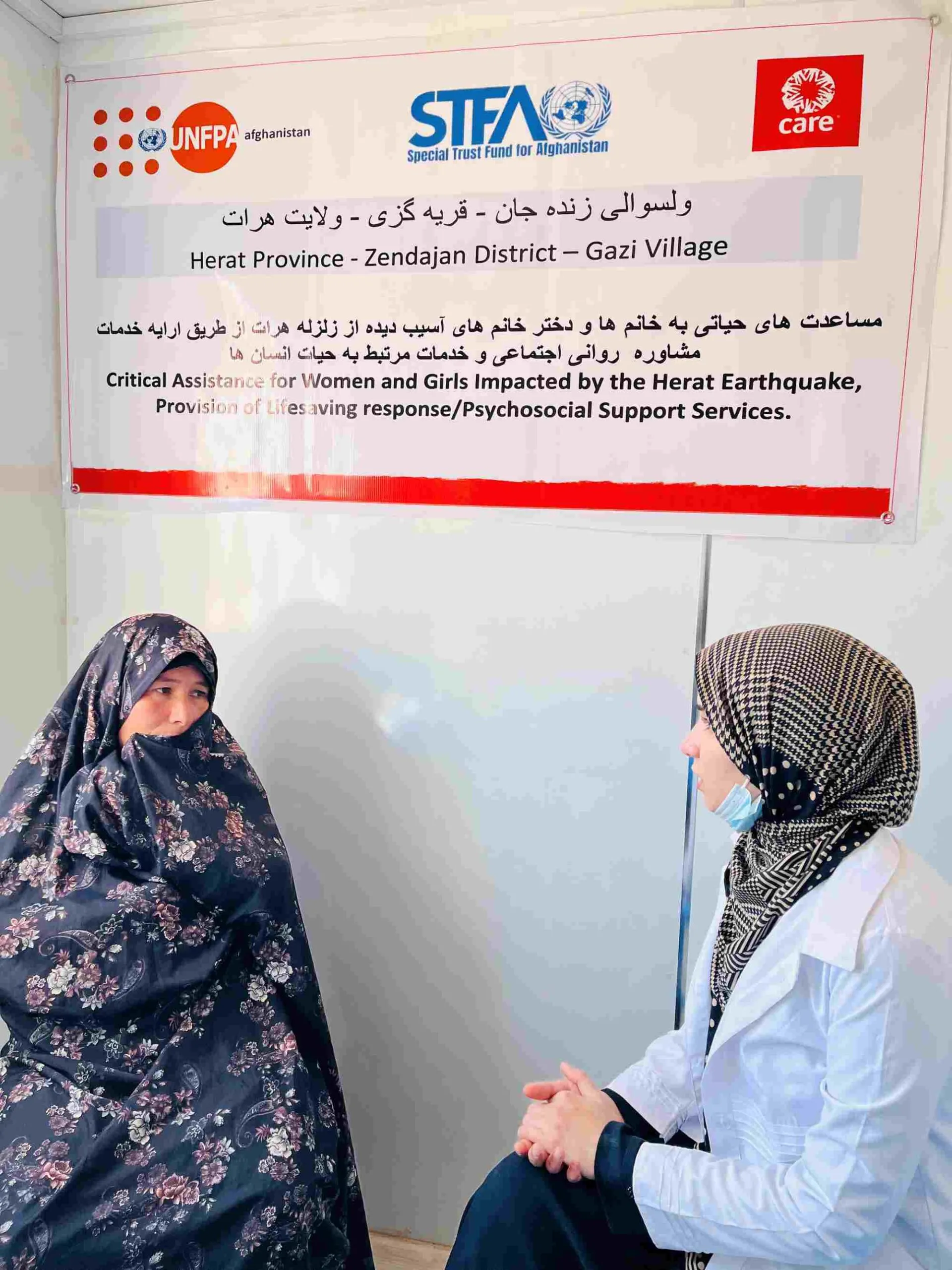The roof collapsed onto her, and her baby was later born with severe deformities, passing away just three days later.
“In an instant,” she says. “My world changed forever.”
Maryam was not alone. Between Oct. 7 and 15, 2023, three devastating earthquakes struck Afghanistan, leaving Maryam and thousands of others in shock and despair. The earthquakes ravaged the country, particularly Herat province, where over 3,330 homes and an estimated 21,300 infrastructures were damaged and destroyed in Zindajan alone. Over 275,000 people were affected, and tragically, more than 90% of the estimated 1,500 casualties were women and children.
The loss of her child plunged Maryam into a severe depression, and she struggled to support her husband and six children.
Maryam’s husband had long-struggled with schizophrenia, and so even before the earthquake, Maryam had to shoulder much of the family’s economic burden alone. Her daughters, too, suffered, burdened with heavy labor that caused back and leg pain.
The fear of expulsion from her village, where neighbors, fearing her husband’s condition, misunderstood her situation, only added to Maryam’s despair.
“I often felt lost, as if hope had been extinguished,” she says.





